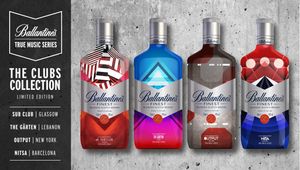
Women’s World Cup: Time for Brands to Lean into Entertainment

In just over a week, the biggest event in women’s football kicks off. The FIFA Women’s World Cup promises to be historic. It is the first time that the tournament will be co-hosted by two countries from different confederations: Australia and New Zealand. It is also the first time that the tournament will feature 32 teams instead of 24, making it more inclusive and competitive. Having won the Euros last year, England’s Lionesses will be looking to challenge defending World Champions the US for the glory, but we all know the shocking upsets that international tournaments so often serve up.
The advertising hype around the World Cup has been somewhat muted this year though, with only a trickle of brand campaigns relating to the event. To find out why and to discuss the potential of this moment, LBB’s Alex Reeves spoke to Jenny Mitton, director and women’s sport lead at M&C Saatchi Sport & Entertainment.
LBB> How would you characterise the run-up to the FIFA Women's World Cup Australia & New Zealand 2023 in general?
Jenny> Eerily quiet. I mentioned the Women’s World Cup to a friend this weekend and her response was “It’s on this month? But I’ve not seen anything about it.”
Normally a few weeks out from a major tournament you begin to sense the excitement building. There are several reasons we’ve not seen this.
Broadcasters in the UK only secured rights from FIFA in June, they’ve not had time to produce the epic promos we’re used to seeing ahead of a big tournament. ITV’s is now live and we’re eagerly waiting for the BBC promo to drop.
The Lionesses have also been under a commercial activity ban that was imposed mid-June. This meant that sponsors had only a matter of weeks post the squad announcement to utilise any access.
Then we have the time zone challenge with games being held in the morning, 10am kick offs instead of fans’ preferred 3pm weekend and early evening weekday games.
That said, once the tournament kicks off and match results start filtering through, we’ll start to see momentum build. We [England] do have the European Champions on our hands after all. So, there’s always the chance we could bring it home (again).
LBB> What is unique about the tournament this year that presents an opportunity to brands?
Jenny> Since the 2019 World Cup we’ve seen the steady rise of the women’s football icon.
International big hitters like Alexia Putellas, Alex Morgan and Sam Kerr now roll off the tongue and fans will watch games beyond their national team to get a glimpse of these players in action.
We’re also seeing more standalone sponsorship deals between brands and players. Sam Kerr x Lego, Leah Williamson x Gucci and Alessia Russo x Beats By Dre are just a few examples of the global brands involved with the female stars.
This is also against a backdrop of the rise of record-breaking player transfers, with high-profile deals driving headlines in the media including Keira Walsh’s move to Barcelona and Georgia Stanway to Bayern Munich. Money talks.
The players are not only role models for girls and women to look up to, they are also becoming icons who are now on the radar of non-core sports fans, presenting a huge opportunity for brands. And that’s not just traditional brands we’re used to seeing in sport sponsorship, we’re also seeing new and exciting brands that have never activated in the space before.
These brands are achieving significant business results too. Recent research from the Women’s Sport Trust showed the impact new brands to women’s sport like Il Makiage and Gucci can make, driving high brand affinity and consideration scores, in fact 10% higher than the norm.
LBB> How would you like to see more brands behaving around the tournament in the lead up and as it plays out?
Jenny> Given how far women’s football has come in the UK specifically, it’s time to move away from campaigns focused on the obstacles that the players face and instead lean into the entertaining aspects of the game.
We can learn a lot from the marketing we’ve seen coming out of the US. Campaigns for the United States women’s team has been focused on how good the team are, which according to the Women’s Sport Trust is more of a driver for engagement than purpose-led comms.
From the squad announcement featuring Taylor Swift and Lil Wayne, the Alex Morgan Lady Liberty statue touring the states, to the humorous Fox spot ‘Team USA Vs. The World’, which opens with the challenge “What’s it going to take to stop this US team?”. Thanks to this marketing approach it’s hard not to want to get behind this engaging and exciting group of players.
LBB> After the Lionesses made England European champions last year, what is the specific opportunity in England?
Jenny> I think the biggest fear post the Women’s Euros was that the hype around the women’s game would slowly decline. That’s not been the case. Quite the opposite in fact.
We’ve seen record breaking TV and in-stadia audiences, coupled with more brands investing in women’s football and general media coverage rapidly increasing.
Women’s football is growing at pace and for me the biggest opportunity is for brands who aren’t already in sport who are looking to engage a younger, more diverse and progressive audience.
During the Women’s Euros we saw a few brands new to women’s football test out the odd reactive ad. Now we’re seeing new brands show up authentically which is hugely encouraging.
A good recent example is KIND Snacks, an FA partner who created a 100-metre-long message of support for the Lionesses underneath the Heathrow flightpath. Letting the team know ‘Lionesses, you’re our pride.’
LBB> What is the potential broader role in culture that the Women's World Cup could and should take?
Jenny> Major sports events like a World Cup can provide a broader role in culture in several ways.
Football is the UK’s number-one passion. As a platform it provides an opportunity to hold a mirror up to how we are evolving as a society and affect positive change.
By getting behind the World Cup, brands are putting out a clear signal that they value equality. Research shows us that for millennials and gen z equality has become a generation defining social issue and they expect brands to react.
Women’s football is also more inclusive than the men’s game. The crowd at games is more diverse and on the pitch we have role models who are more representative of our society and who use their platform to challenge social issues.
Thanks to the scale of the World Cup, we know we’ll get more eyeballs on the women’s game and once people experience the excitement and skill displayed in women's football, they will inevitably become hooked.
Check it out on the BallerFC or ThisFanGirl watch parties and see for yourself.












